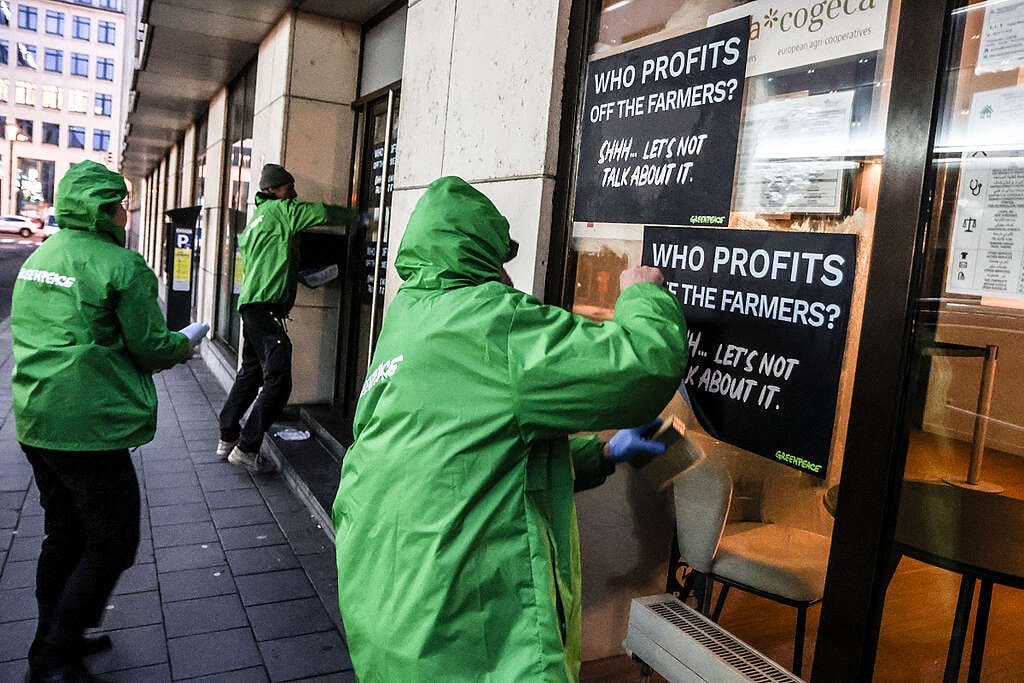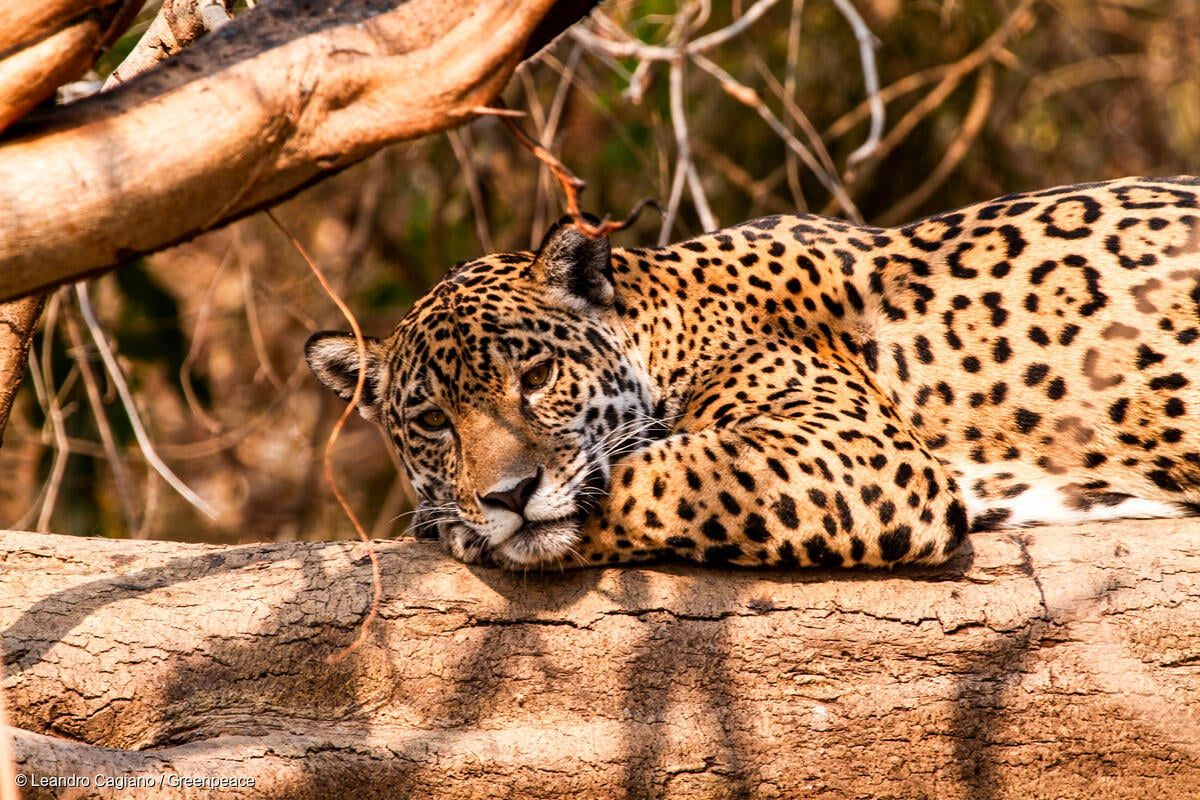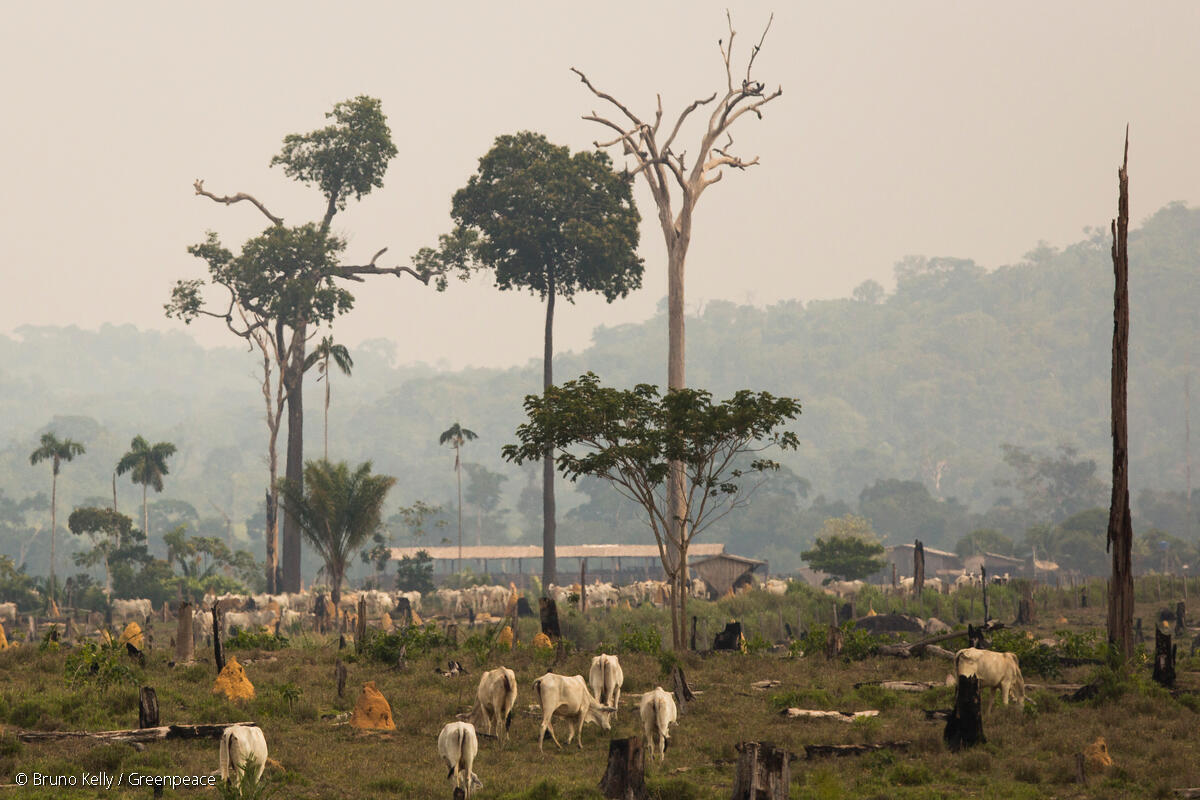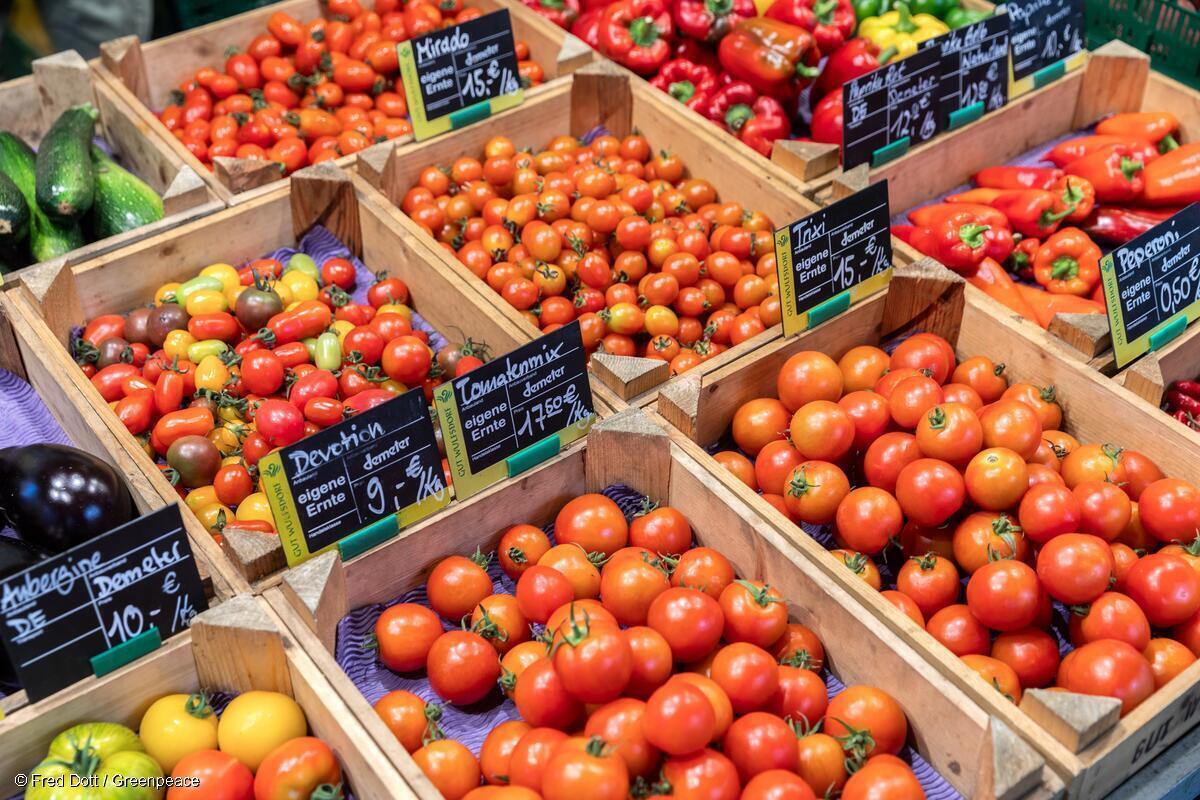
Brussels, 23 February 2024 – This morning, Greenpeace Belgium activists stuck posters reading “Who profits off farmers? Shhh… Let’s not talk about it.” on the headquarters of interest groups and political parties around Brussels upholding the system that penalises small and medium farmers.
Before dawn, activists paid a visit to the European People’s Party (EPP), the European confederation of farming lobbies COPA-COGECA, retail and wholesale lobby EuroCommerce and the industry federation FoodDrinkEurope.
High-quality photos are free to use here. These will be uploaded later today to the Greenpeace Media Library.
Greenpeace EU agriculture policy director Marco Contiero said: “Farmers across Europe are understandably feeling serious pressure, but nobody is asking who’s profiting from the crisis they’re in. Chemical companies, the food industry and the big supermarket chains harvest record revenues, and conservative politicians hope to gain votes by blaming the farmers’ predicament on nature protection. These are the players that uphold the system of subsidies and rules that only benefits the biggest, most industrial farms. Farmers are on the front lines of the nature and climate crisis, and can be nature’s best allies if the system encourages and rewards the right practices, instead of lining the pockets of factory farms.”
Activists also hung posters at the offices of Flemish and Walloon political parties (CD&V, Open VLD and MR), the Belgian retail federation Comeos and the Belgian food industry lobby Fevia.
The biggest food companies are making monster profits, but at the expense of most farmers, consumers as well as nature.
Anger at trade deals
International free trade agreements, such as the one between the EU and the Mercosur countries, cause concern over unfair competition for European farmers.
The Walloon farmers’ union FUGEA, the international farmers’ organisation Via Campesina and Greenpeace, with other partners, will protest in the European quarter on Monday 26 February against harmful trade agreements, while European agriculture ministers meet to discuss solutions to the agricultural crisis.
Riding roughshod over precious grasslands
The European Commission has also circulated a ‘non-paper’ outlining a series of measures that would provide responses to farmers’ protests, such as opening up nature-rich grasslands to ploughing and setting up derogations to environmental conditions underpinning public subsidies paid out under the Common Agricultural Policy.
The paper does not include any immediate policy proposals, as those will be presented in the near future.
Contiero said: “Our climate, our farmers and the food we eat depend on the protection of grasslands, with all the biodiversity they host and carbon they store. The EU has already killed pesticide reduction measures, animal welfare laws, industrial emissions rules and biodiversity protection plans. Now incentivising ploughing grasslands will not only mean more environmental disaster, but also encourages all those denying the need to transition away from the current unsustainable system: ask whatever you want and we’ll give it to you. It’s a perfect gift to the extreme-right and the companies profiting from nature destruction.”
Contacts:
Marco Contiero, Greenpeace EU agriculture policy director: +32 (0)477 777034, [email protected]
Greenpeace EU press desk: +32 (0)2 274 1911, [email protected]
For breaking news and comment on EU affairs: www.twitter.com/GreenpeaceEU



